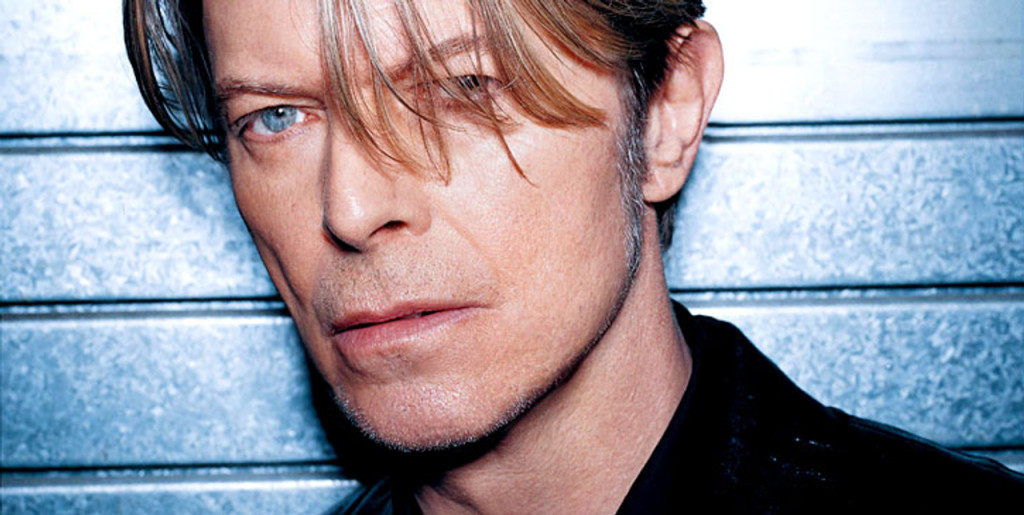
Photo: Buzzfeed
So much greater than the man who created him, David Bowie is more alive now than ever
David Jones is dead.
He was 69, he had cancer and he died surrounded by the people he loved and who loved him. Just like any average person who falls victim to disease.
For the rest of us, David Jones was a stranger, just another guy who fell in love, fought, laughed, cried, had a family, paid bills and sat in a doctors’ office to get the news none of us want to ever hear.
Cancer. Such a mortal thing. Something average people die from. Something anyone can die from.
Over the last 18 months, David Jones was slowly, yet quickly dying from cancer and he did what most people who still can, do.
He worked.
And when David Jones died Sunday, just two days removed from his 69th birthday, he left us with one thing more.
David Bowie.
Despite everything you heard today, David Bowie didn’t die Sunday night. David Bowie is alive and well and he breathes every breath we breathe.
David Bowie lives, because he is a god.
Now before you scream “sacrilege!”, hear me out. David Bowie was never a man, he was a persona. He was an idea, and from that idea, came many ideas in the form of 27 studio albums, nine live albums, 46 compilation albums, five extended plays (EPs), 111 singles, and three soundtracks. That idea also extended into 13 video albums, 51 music videos and 33 film roles.
All of this over the course of five decades.
With each of the five decades, Bowie presented himself in many forms, from a wiry androgynous glam rocker to Ziggy Stardust, to Aladdin Sane, to the Thin White Duke and beyond. Bowie embraced a number of genres fearlessly, even if it meant enraging music executives because they feared that the latest change would ruin everything.
But it didn’t. It never did.
And like any god, Bowie had his acolytes, he had his ministers and he had his pretenders.
We could sit here and pour through each of those 27 albums (which I highly recommend) and pick apart what it is about David Bowie that so endeared him to humanity, but instead of doing it, let’s discuss his effect on the world around us, his influence.
What better way to praise a legend than to show how that legend grew through others.
Bowie’s classics, newer and older have been covered by a litany of artists, some finding hits of their own in the process. They spread the gospel in different arrangements, different styles and different languages. His work even found its way into space thanks to astronaut Chris Hadfield.
To date, Hadfield’s version of ‘Space Oddity’ has been viewed more than 27 million times. 27 million views for a cover. Outside of writing the song, Bowie had nothing to do with the video, yet there he was.
Bowie’s influence transcended genre, and even an album like 1977’s Low, an album that when released brought division amongst critics and caused more than a fair bit of anxiety among executives at RCA Records, who nervously sat on the album before releasing it.
Of course the fans didn’t care about the sea change in genre. They made the album, the first of his “Berlin Trilogy”, a hit, just as they did with most all his work.
One fan in particular of the Bowie/Brian Eno collaboration was composer Philip Glass, who 15 years later, would use Low as his inspiration to make Symphony No. 1, also known as the “Low” Symphony. Glass would later go on to make a second symphony in 1997 as an homage to Bowie’s next album in the trilogy, “Heroes”
https://www.youtube.com/watch?v=3TZsW99Vw_U
Peter Gabriel would also take Bowie’s masterpiece and take what is already a haunting masterpiece and gave it even more depth and weight.
It should be no surprise that Bowie’s influence and inspiration would spawn a legion of covers, but the way in which those covers would capture audiences just as much as the originals says something even larger. This isn’t just inspiration via imitation, this is an extension of love.
Often fans are protective of artist and the their work, but Bowie’s work, the existence of its divinity, seemed to only bless other performers, with his words and melodies making those who perform his work even stronger.
When Wes Anderson made The Life Aquatic With Steve Zissou in 2004, he took a little known Brazilian singer named Seu Jorge and cast him in the role of Pelé dos Santos, a crew member on Zissou’s Belafonte with a penchant for recording Bowie covers throughout the film in his native Portuguese, serving as a pseudo-Greek Chorus for the events unfolding in the film.
Bowie found himself a fan of Seu Jorge’s covers, saying: “Had Seu Jorge not recorded my songs in Portuguese I would never have heard this new level of beauty which he has imbued them with.”
Jorge’s covers in The Life Aquatic were so popular, so well-received, that they were compiled not only on the film’s soundtrack, but also on a second album, The Life Aquatic Sessions. What’s remarkable about the popularity of the covers is that they are not only all in Portuguese, but they are not literal translations, with Jorge shifting some lyrics, but keeping the melodies intact.
Rare songs survive such a transition and maintain fan interest, let alone an entire catalog of songs, but this is the power and universal nature of Bowie’s work, a work that transcends not only him, but even language. The sound alone is enough, and that speaks volumes.
Bowie’s legacy has been so powerful, so lasting, that even hoax covers take on a life of their own.
In 2012, three Bowie covers were “discovered” after reported years of obscurity. The songs, purportedly recorded by a band known as “Milky Edwards & The Chamberlings”, caused a bit of controversy, as no one could remember ever hearing of the band, much less verify their existence beyond that of a hoax.
Hoax or not, someone recorded three covers, “Starman”, “Moonage Daydream” and “Soul Love”, all from Bowie’s The Rise and Fall of Ziggy Stardust and the Spider from Mars
Who would create a hoax band just to make what turned out to be very good R&B covers of Bowie songs, and never reveal their true identity? If that’s not a blind tribute, it’s hard to say what is.
But that is ultimately the effect David Bowie had and continues to have over music fans everywhere.
David Jones is dead, but David Bowie courses through our veins as much now as he ever had. He’s with us as we’re making love, he’s with us when we break up, he’s with us when we go on long road trips or workout on treadmills.
Bowie is with us in all our best and worst moments. He made it OK to be queer. He made it OK to love someone of another race. He made it OK to love music and accept it into our lives until the clock on each of those lives hits zero.
And much like any god, he will be here long after we’re gone.
As David Jones was dying, he worked to give us one last thing, one last piece of David Bowie to complete a circle that will spin ad infinitum, and that latest work, Blackstar, is a clear understanding that an end will come for us all. Note that I said an end, not THE end.
David Bowie is saying goodbye to David Jones, just as someone will say goodbye to all of us as our bodies wither and age. But with that goodbye, Bowie watches over us all, like he always has, and in our lowest moments, our highest moments, all we have to do is say a prayer by pressing play, and he will come.
David Bowie is alive and well, and as we let David Jones go, we know that we will continue to find solace and comfort from each and every song, every performance only a touch away, and when we’re gone, those we leave behind, those who come after us will have access to the same pleasure.
It is a prayer answered.
Hashim R. Hathaway (Uncle Shimbo) is the host of the Never Daunted Radio Network, and proud father to NeverDaunted.Net. You can reach him on Twitter @NeverDauntedNet
